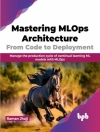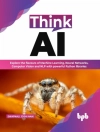This book provides an overview of state-of-the-art implementations of quantum random number generators (QRNGs), and especially examines their relation to classical statistical randomness models and numerical techniques for computing random numbers. The reader – who ideally has a background in classical statistics, computer science, or cryptography – is introduced to the world of quantum bits step by step, and explicit relations between QRNGs and their classical counterparts are identified along the way.
Random number generation is a major pillar of cryptography. Capitalizing on the randomness inherent in quantum phenomena is a rapidly evolving branch of quantum cryptography with countless applications for the future. The value of quantum randomness for cryptographic purposes is empirically demonstrated in statistical evaluations of QRNGs’ performance compared to classical techniques for true and pseudorandom number generation. The book then provides an overview of technical implementations of QRNGs, before a concluding discussion of major achievements and remaining obstacles in the field rounds out the coverage, while also opening the door for future research directions.
Tabla de materias
What is Randomness?.- Classical Sources of Randomness.- Pseudo-Randomness.- Physical Randomness.- Tests and Certification of Randomness.- Quantum Randomness.- Implementations of QNRGs.- Comparison of QNRGs.- Post-Processing for QNRGs.- Other Post-Processing Methods.












